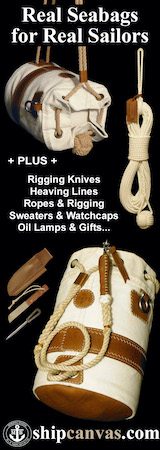William J. Roué
1879 - 1970
(Most of this is from an excellent website 'www.wjroue.com', which now appears to be defunct.)
Birthdate: April 27, 1879
Birthplace: Halifax, Nova Scotia - family residence was in the south end of Halifax, just a few blocks from Halifax Harbour.
Parents: James and Grace (Penaligan) Roué
Siblings: John and Harold
Wife: Winnifred (Conrod)
Children: James (Jim), Harry and William F. (twins), and Frances
Residence: Halifax, Nova Scotia (1879-1908); 23 James Street, Dartmouth, Nova Scotia (1908-34); City Island, New York (1934-1936); 23 James Street, Dartmouth (1936-70)
Career: Bauld, Gibson & Company, Halifax (grocery store clerk, 1897-99); Roué's Carbonated Waters (1899-1931); part-time Naval Architect (1904-31); full-time Naval Architect (1931-70)
Member: Canadian Yacht Racing Association; North American Yacht Racing Association; Lieutenant Canadian Artillery, 1903-08; Royal Nova Scotia Yacht Squadron, Halifax (1897-1970); Armdale Yacht Club, Halifax; City Club, Halifax; Banook Canoe Club, Dartmouth
Highlights:
1883: Began making toy wooden boats.
1883: Asked his father to help him put outside lead ballast on a toy boat he had built - a concept rarely used at the time.
1892: Completed first five foot model sailing yacht - which sailed so fast two men rowing a light skiff could not catch it. Began spending all of his spare time at the Royal Nova Scotia Yacht Squadron becoming a master skipper before he was able to become a member.
1896: Leaves school and works for wholesale grocery firm, earning $100 annually. Studied mechanical drafting at Victoria School of Art and Design in Halifax. During that same year Bill (as he was known to many) received a well-used copy of Dixon-Kemp Yachting Architecture from Frank H. Bell, a member of the local yacht squadron who recognized the young man's passion for boating.
1897, June 27: Became a member of the Royal Nova Scotia Yacht Squadron for a $10 fee.
1903: Joins the family firm, Roué Carbonated Waters, Ltd., as a junior clerk.
1907: Designs his first mathematically calculated yacht for none other than his mentor, Frank H. Bell.
1908: Married Winnifred Conrod and moved to what would become his family home, 23 James Street in Dartmouth, Nova Scotia.
1909, Spring: Babette, the yacht he designed for Frank Bell, was launched in Halifax.
1910, May 23: Son James Frederick was born.
1913, July 14: Twins Harry and William were born.
1916, September 9: Daughter Frances Grace was born.
1920, Fall: Received the contract to design a fishing schooner that would contend for the International Fishermen's Trophy.
1921, March 26: Design No. 17, the fishing schooner named Bluenose, was launched in Lunenburg, Nova Scotia.
1921, October: Bluenose wins International Fishermen's Trophy - the first of many victories for a design that would bring W.J. Roué global recognition.
1921, December 30: Received a commemorative plaque and gift of recognition from the citizens of Dartmouth for bringing fame and pride to their town.
1922: Designed the Star Class, later renamed the Roué 20 (Design No. 20).
1924: James Roué (father) passed away. Bill and his brother Harold would run the family business.
1929: Family firm (Roué's Carbonated Waters) was sold. Bill remained on retainer as a consultant while at the same time opening an office on Barrington Street in Halifax to pursue a professional career in naval architecture.
1932: Included in Prominent Men Of Canada publication.
1934: Now working on his 102nd design, W.J. Roué became a full-time naval architect, leaving the beverage business.
1934: Accepted an offer of partnership with a New York City naval architecture firm, Ford and Payne. Their family grown, he and Winnifred moved to City Island, and the firm became "Ford, Payne and W.J. Roué." Dartmouth home was cared for by family members.
1936, October: Finding the fast-paced New York City lifestyle too severe, the Roué's left City Island and returned to their home in Dartmouth.
1942: Invented the sectional barge. Used by the Allied forces in World War II for landing troops and supplies. The barges and accompanying tugs were all constructed at five shipyards in the Maritime Provinces of Canada, putting over 1,000 people back to work during the war years. The British Ministry of War Transport alone purchased over $30 million of these barges and tugs. Now in his 60s, W.J. Roué personally oversaw the construction travelling the Maritimes with his son Jim.
1944: Opened an office on Hollis Street in Halifax.
1948: After building an addition on the family home, moved office there.
1954: Winnifred Roué (wife) passed away.
1954: W.J. Roué was honoured by the Armdale Yacht Club.
1955: Inducted into the Canadian Sports Hall of Fame (Sport: Yachting; Theme: Aquatics). Still the only yacht designer to receive this honour.
1963, February 27: Helped to drive a golden spike into the keel of Bluenose II.
1963, June 18: W.J. Roué was honoured by the Royal Nova Scotia Yacht Squadron.
1963, July 24: Was a special guest at the launching of Bluenose II in Lunenburg.
1970, January 14: Passed away at the age of 90 in his home on 23 James Street in Dartmouth.
1995: A Spirit Deep Within, a W.J. Roué biography written by great-grandaughter Joan Roué, was published.
1997, September 13: A Toast To William Roué gala event at the Royal Nova Scotia Yacht Squadron in Halifax. Attended by over 500, the function was attended by dignitaries, Roué enthusiasts and even Bluenose II. The gala was held in conjunction with the 75th anniversary of the Roué 20 vessels, Design No. 20.
1998, July 24: Canada Post issued a commemorative stamp bearing the image of W.J. Roué.
2002, May 3: William J. Roué Reading Room Opened In Lunenburg.
2004, February 1: W.J. Roué inducted in the Nova Scotia Sport Hall Of Fame.












